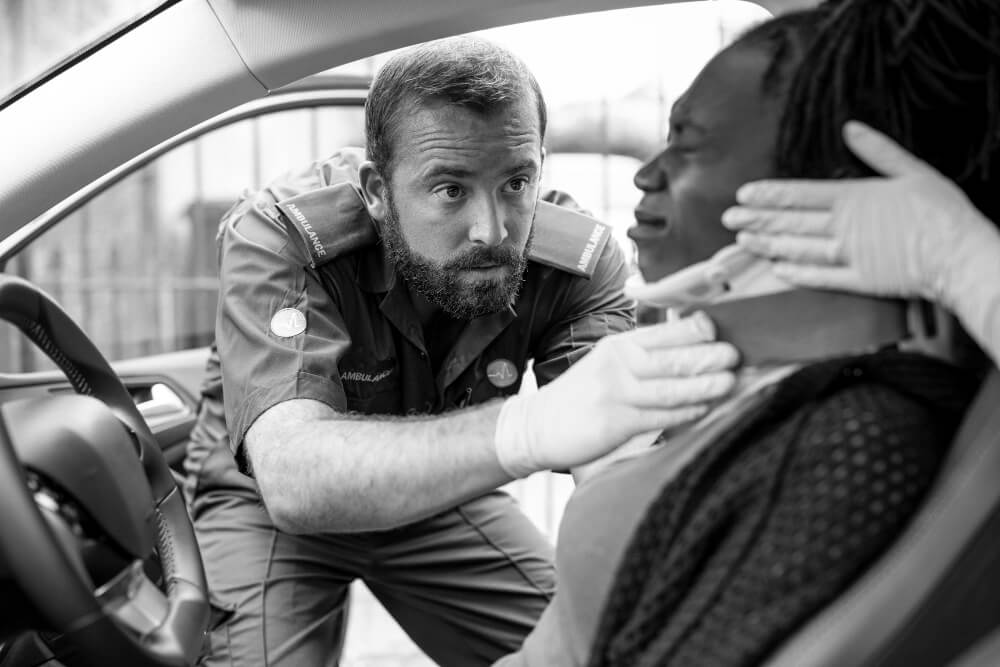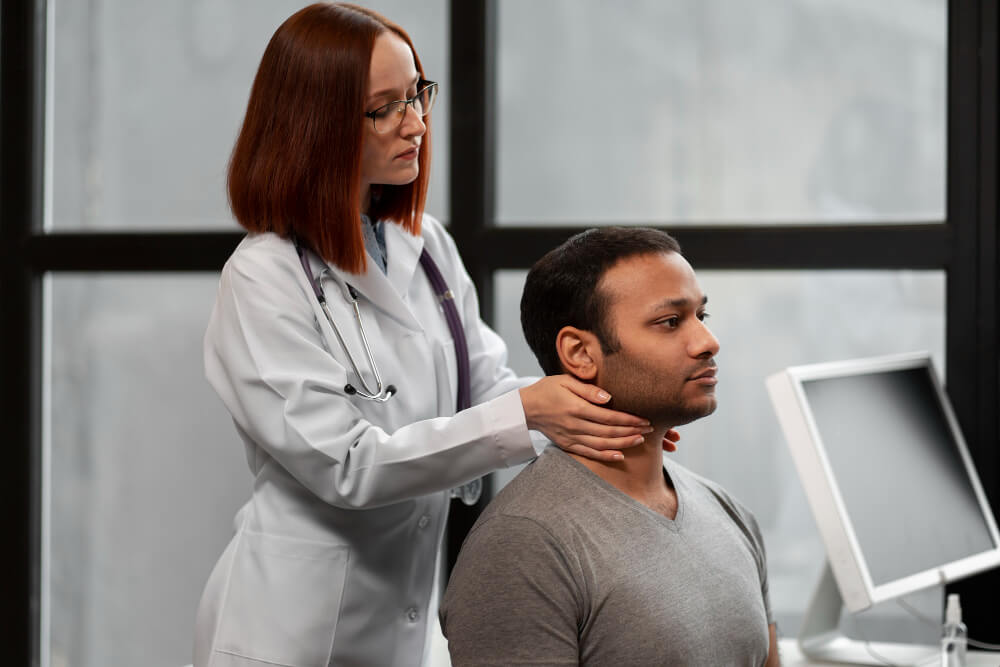When to Visit Urgent Care After an Auto Accident
While some auto injuries require immediate emergency room care, urgent care can effectively handle many common car accident injuries. Here are some situations where visiting urgent care after an accident is recommended:
- Neck pain and stiffness: These are classic symptoms of whiplash, and urgent care can provide a diagnosis, pain medication, and referral for further treatment, if necessary.
- Headaches: Headaches are another frequent consequence of auto accidents. Urgent care can rule out more serious causes and recommend treatment options.
- Back pain: Back pain can arise from various car accident injuries. Urgent care can assess the severity and recommend treatment plans like pain medication, muscle relaxers, or physical therapy.
- Minor cuts, scrapes, and sprains: Urgent care can effectively clean and dress minor wounds and provide support for sprains.
Urgent Care Won’t Treat These Auto Injuries
While urgent care can handle many auto injuries, some situations require emergency room care. Here are some instances where you should head straight to the ER:
- Severe pain or difficulty moving: If you experience excruciating pain or struggle to move any part of your body, seek emergency care immediately.
- Head injuries: If you sustained a head injury, including a concussion or loss of consciousness, go to the ER for a comprehensive evaluation.
- Open fractures: Open fractures involve broken bones protruding through the skin. These require immediate medical attention in an emergency room.
- Internal bleeding: Internal bleeding can be a life-threatening complication of car accidents. If you experience severe abdominal pain, dizziness, or weakness, head straight to the ER.
Benefits of Urgent Care for Auto Injuries
- Convenience: Urgent care centers are typically located in convenient locations with extended hours, making them easily accessible even after regular business hours.
- Wait times: Compared to emergency rooms, urgent care centers often boast shorter wait times, allowing for quicker evaluation and treatment.
- Cost-effective: Urgent care visits are generally less expensive compared to emergency room visits, especially for non-life-threatening injuries.
- Focus on auto injuries: Many urgent care centers have staff experienced in handling auto injuries, allowing for a tailored approach to address your specific needs.
What to Expect During Your Urgent Care Visit for Whiplash
Here’s a breakdown of what to expect during your visit to urgent care for a suspected whiplash injury:
- Registration: Upon arrival, you’ll complete registration formalities and provide details about your accident and symptoms.
- Medical history review: The doctor will inquire about your medical history, including any pre-existing conditions and medications you take.
- Physical examination: The doctor will examine your neck for pain, tenderness, range of motion, and any neurological concerns. Depending on your symptoms, imaging tests like X-rays might be ordered to rule out fractures or other complications.
- Diagnosis and treatment plan: Based on the examination and potential test results, the doctor will diagnose whiplash and develop a treatment plan. This may involve pain medication, muscle relaxers, a cervical collar for short-term support, and a referral for physical therapy.
Recovery Tips for Whiplash
While there’s no one-size-fits-all approach to whiplash recovery, here are some tips to promote healing:
- Rest
- Apply ice


